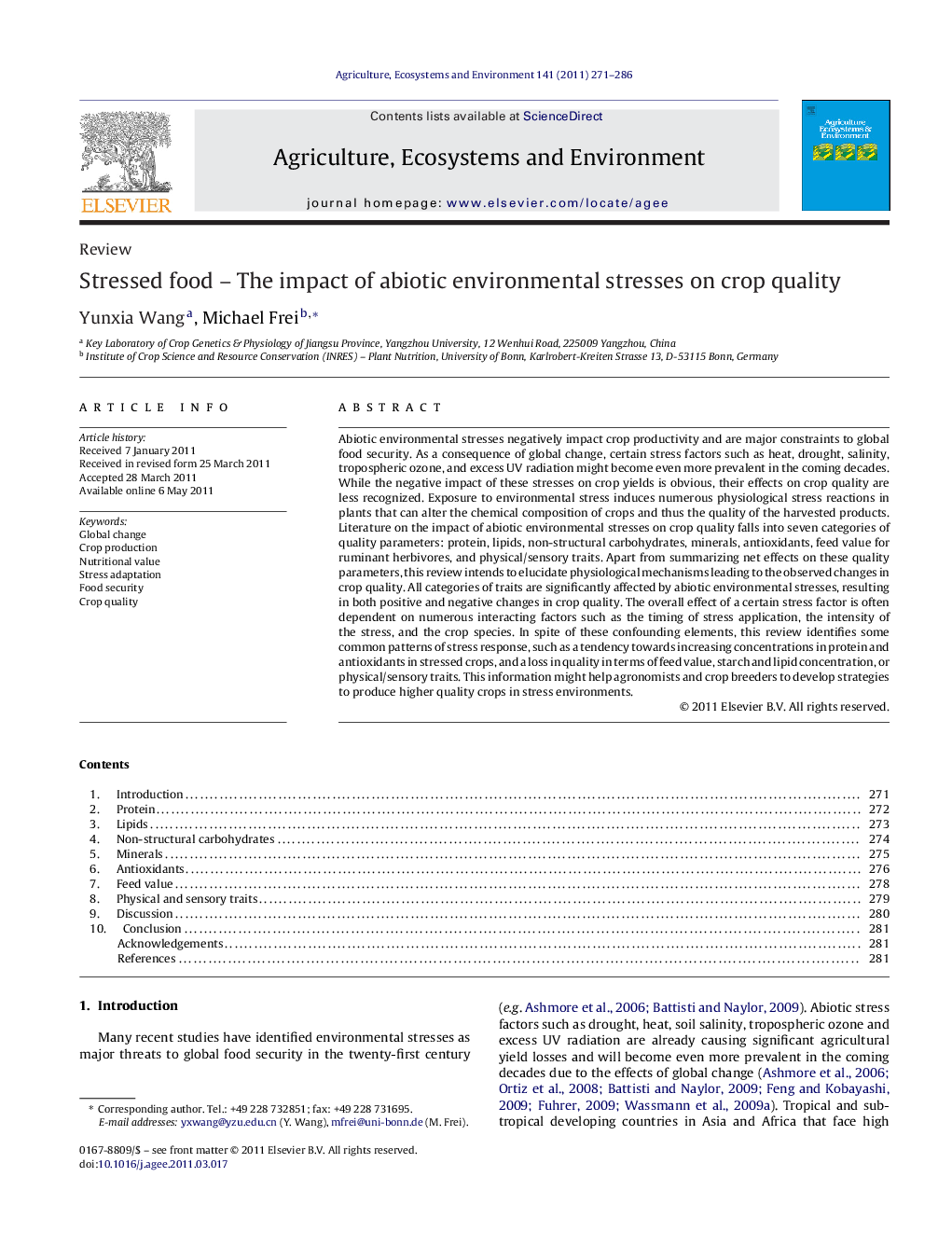| Article ID | Journal | Published Year | Pages | File Type |
|---|---|---|---|---|
| 2414820 | Agriculture, Ecosystems & Environment | 2011 | 16 Pages |
Abiotic environmental stresses negatively impact crop productivity and are major constraints to global food security. As a consequence of global change, certain stress factors such as heat, drought, salinity, tropospheric ozone, and excess UV radiation might become even more prevalent in the coming decades. While the negative impact of these stresses on crop yields is obvious, their effects on crop quality are less recognized. Exposure to environmental stress induces numerous physiological stress reactions in plants that can alter the chemical composition of crops and thus the quality of the harvested products. Literature on the impact of abiotic environmental stresses on crop quality falls into seven categories of quality parameters: protein, lipids, non-structural carbohydrates, minerals, antioxidants, feed value for ruminant herbivores, and physical/sensory traits. Apart from summarizing net effects on these quality parameters, this review intends to elucidate physiological mechanisms leading to the observed changes in crop quality. All categories of traits are significantly affected by abiotic environmental stresses, resulting in both positive and negative changes in crop quality. The overall effect of a certain stress factor is often dependent on numerous interacting factors such as the timing of stress application, the intensity of the stress, and the crop species. In spite of these confounding elements, this review identifies some common patterns of stress response, such as a tendency towards increasing concentrations in protein and antioxidants in stressed crops, and a loss in quality in terms of feed value, starch and lipid concentration, or physical/sensory traits. This information might help agronomists and crop breeders to develop strategies to produce higher quality crops in stress environments.
► Effects of abiotic environmental stresses on crop quality are summarized. ► Physiological processes leading to the observed changes in crop quality are explained. ► Strategies are proposed to improve the nutritional value of crops grown in stress environments.
